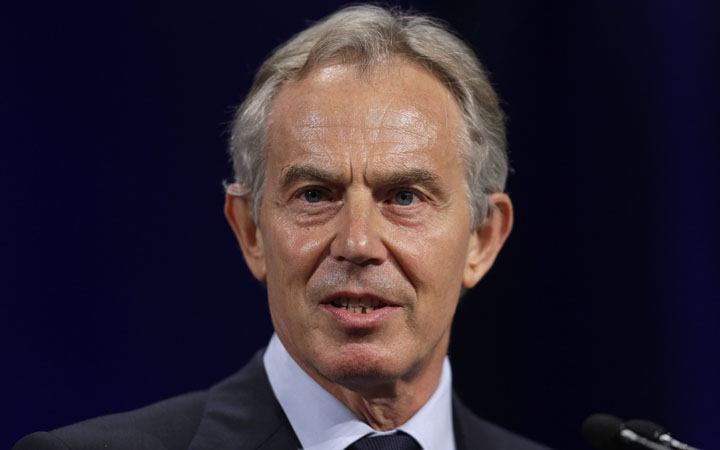LONDON – Former Prime Minister Tony Blair supported military operations in Iraq about a year before the British Parliament approved such action, according to a 2002 memo written by then-U.S.Secretary of State Colin Powell.

The memo published in the Mail on Sunday was written before Blair’s April 2002 visit to President George W. Bush’s ranch in Crawford, Texas. The once-classified memo was released by the U.S. State Department after a 2012 Freedom of Information request.
“On Iraq, Blair will be with us should military operations be necessary,” Powell wrote.
Publication of the memo is likely to increase pressure on John Chilcot, chairman of the U.K.’s Iraq war inquiry, to publish the results of the investigation, which began six years ago. Families of service personnel killed in Iraq have threatened to go to court to speed up the release, saying the delays are prolonging their suffering as they search for answers.
READ MORE: British politician resigns after video published of alleged cocaine, prostitute binge
Blair’s office said the memo was consistent with Blair’s testimony to Chilcot’s panel.
When asked about the meeting in Crawford, Blair told the inquiry that he made no commitment the U.K. would take part in a war against Iraq and Saddam Hussein.
“The only commitment I gave, and gave openly, was a commitment to deal with Saddam … There was a general discussion of the possibility of going down the military route, but obviously we were arguing very much for that to be if the U.N. route failed,” Blair said in 2010.
The inquiry into decisions and mistakes in Britain’s planning and execution of the war began in 2009, but the timetable for release remains unclear. Publication of the results has been delayed partly by a process that gives those who are criticized a chance to respond.
Chilcot has defended the time spent on the investigation, saying that while he understands the anguish of family members, the process must be fair to decision makers. The inquiry has no precedent, with 130 sessions held to take witness testimony and more than 150,000 documents received, Chilcot says.
Prime Minister David Cameron has joined other politicians in arguing that the panel has had enough time and that it should wrap up its work.



Comments